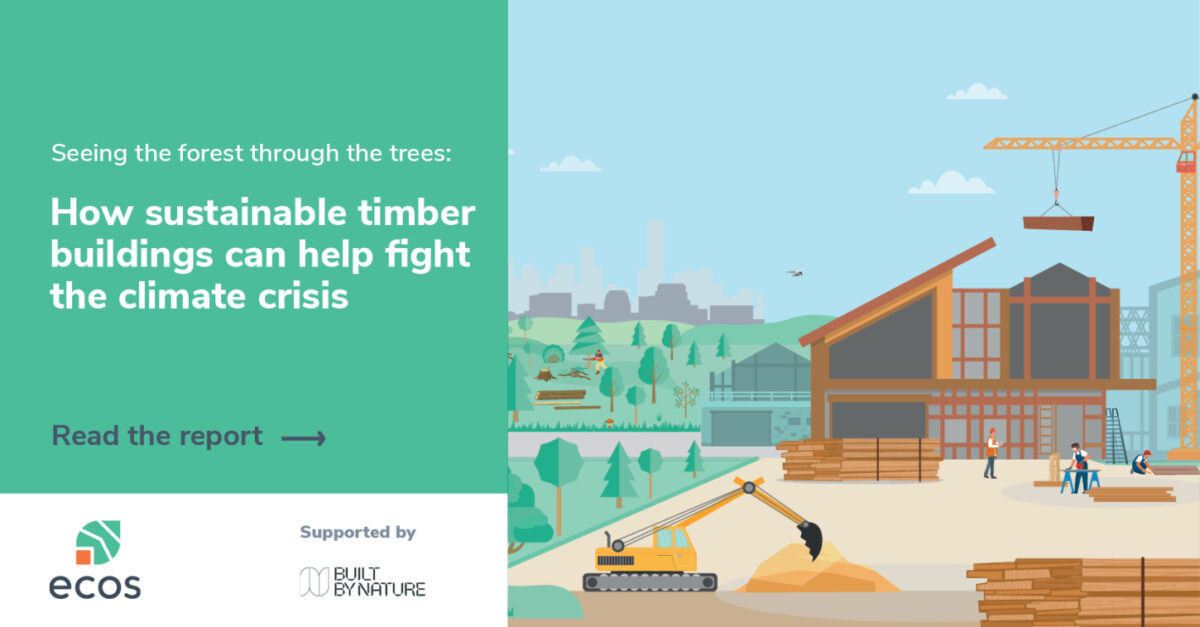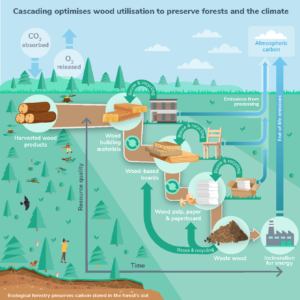ECOS Report – Seeing the forest through the trees: How sustainable timber buildings can help fight the climate crisis
New ECOS report on sustainable timber constructions explains how policy and standards can support the mutual improvement of the ecological functions of forests via ecological forest management, and decarbonise the building sector through a reasonable use of circular and sustainably-sourced timber.

Global wood consumption is overshooting what forests can sustainably provide by up to 67% – and this
overconsumption is likely to continue growing. In the EU alone, member state climate plans forecast 40-100%
more demand for forest and agricultural products for energy and materials that will be sustainably available.
This situation is untenable: global strategies must be developed setting out the role sustainable wood consumption can play as part of our built environment. For more information, join our latest online event.
We cannot afford to continue considering environmental issues in isolation when climate change is causing devastating forest fires and droughts and annulling forest carbon offsets: forest management must be ecological and adaptive to climate change for carbon removals to reach their full potential.

A cascading use of wood resources should take place across sectors that use wood (construction, energy, packaging, paper, furniture, textiles, chemicals…) to conserve forests and address the twin climate and biodiversity crises that are linked to forest harvests. Forest resources are slow-growing and cannot match the rapid consumption from sectors such as large-scale bioenergy and single-use packaging, which are better met with zero-carbon feedstocks and reusable solutions.
Our general understanding of forests, wood uses and the climate, and biodiversity impacts of buildings are still in development, while industry standards lack precision. This is particularly the case for data and methods for assessing forest management impacts; the duration of carbon storage in products and buildings; and the overall balance of lifecycle impacts from forest to buildings. Policy should therefore support their improvement, but it should not rely on them to allocate incentives to industry until methodology and data robustness are ensured systematically.
It is crucial that climate mitigation goals — including ambitions to increase carbon removals — do not eclipse other environmental policy priorities, such as circularity, biodiversity, and climate adaptation.
Read our key points and recommendations HERE.
Find the full report HERE.
Download the document

